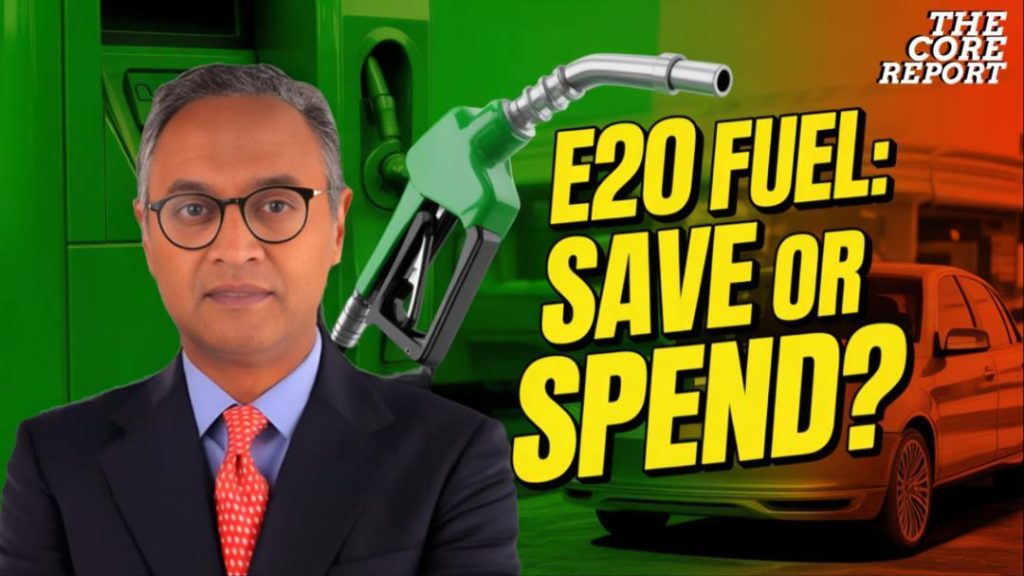
E20 Fuel in India: Benefits, Risks & What Vehicle Owners Must Know
The Indian government has been making significant strides in promoting the use of E20, a petrol blend that contains 20% ethanol, in a bid to reduce carbon emissions, boost energy security, and support farmers. The introduction of E20 fuel in India has been met with both excitement and concern, with many vehicle owners wondering what it means for their vehicles. In this blog post, we’ll delve into the benefits and risks associated with E20 fuel and what vehicle owners must know before making the switch.
Benefits of E20 Fuel
The Indian government has been promoting the use of ethanol-blended petrol, including E20, as a cleaner and more environmentally friendly alternative to traditional petrol. Some of the benefits of E20 fuel include:
- Reduced Carbon Emissions: E20 fuel emits fewer greenhouse gases, contributing to a reduction in carbon emissions and climate change.
- Improved Air Quality: E20 fuel produces fewer pollutants, such as particulate matter, nitrogen oxides, and sulfur dioxide, which are harmful to human health and the environment.
- Increased Energy Security: Ethanol is a domestically produced fuel, which reduces dependence on imported crude oil and enhances energy security.
- Support for Farmers: The use of E20 fuel supports Indian farmers by providing a market for surplus sugarcane, which is used to produce ethanol.
Risks Associated with E20 Fuel
While E20 fuel offers several benefits, it also poses some risks that vehicle owners should be aware of:
- Engine Wear and Tear: E20 fuel can cause engine wear and tear due to its corrosive properties, which can lead to increased maintenance costs and reduced vehicle lifespan.
- Fuel System Corrosion: E20 fuel can corrode fuel system components, including tanks, pipes, and pumps, which can lead to costly repairs.
- Mileage Loss: Some vehicle owners have reported reduced mileage on E20 fuel, which can impact their daily commutes and overall fuel efficiency.
- Compatibility Issues: Older vehicles not designed for E20 fuel may experience compatibility issues, which can lead to engine problems, reduced performance, and increased emissions.
What Vehicle Owners Must Know
As the use of E20 fuel becomes more widespread in India, vehicle owners must take certain steps to ensure their vehicles are compatible and to minimize potential risks:
- Check Your Vehicle’s Compatibility: Check your vehicle’s manual or consult with your dealership to determine if it is compatible with E20 fuel.
- Perform Regular Maintenance: Regular maintenance, including oil changes and fuel filter replacements, can help reduce the risk of engine wear and tear and fuel system corrosion.
- Monitor Your Vehicle’s Performance: Keep an eye on your vehicle’s performance, including fuel efficiency, engine noise, and emissions, and report any issues to your dealership or mechanic.
- Upgrade Your Vehicle (If Necessary): If your vehicle is not compatible with E20 fuel, you may need to upgrade your vehicle or replace certain components to ensure safe and efficient operation.
Adaptation Concerns
As the Indian government prepares to make E20 fuel mandatory for all new vehicles by 2025, there are concerns about adaptation and compatibility. However, the government has announced plans to provide incentives and subsidies to vehicle manufacturers and dealerships to ease the transition.
Conclusion
The introduction of E20 fuel in India presents both opportunities and challenges for vehicle owners. While E20 fuel offers several benefits, including reduced carbon emissions and improved air quality, it also poses risks, including engine wear and tear, fuel system corrosion, and mileage loss. By understanding the benefits and risks associated with E20 fuel, vehicle owners can take steps to ensure their vehicles are compatible and to minimize potential issues.
News Source:
https://youtu.be/zM_EyWPyliQ






